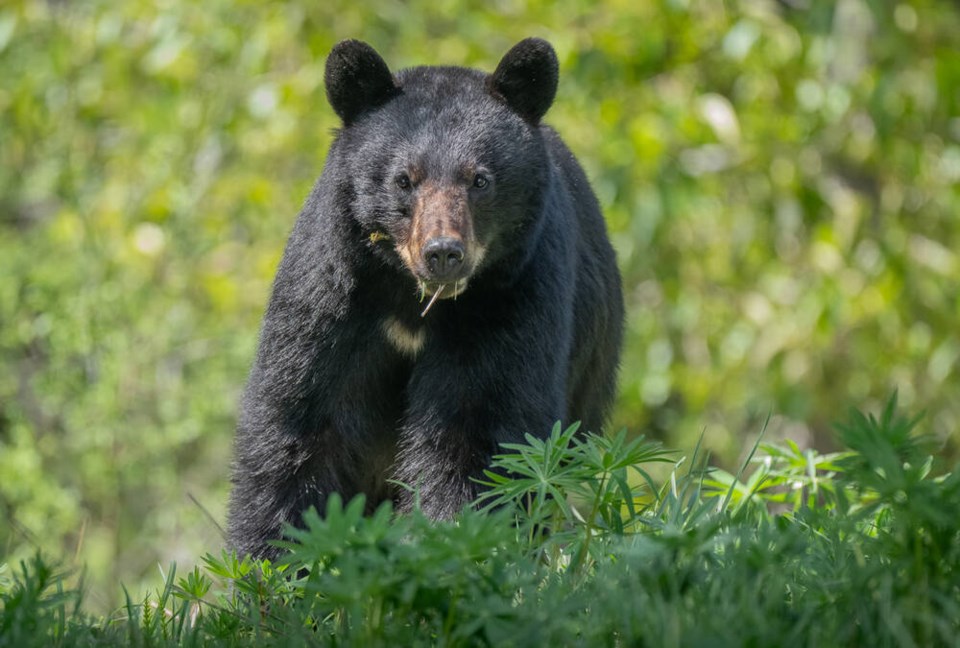Things are getting a bit hairy on the bear front, advocates are warning.
The North Shore Black Bear Society is urging residents act responsibly around bears, which have been highly active getting into garbage, homes and pic-a-nic baskets.
Kirstin Takashiba, program co-ordinator, said she has been spending a lot of time educating residents after a bear “followed their nose” into open homes.
“This is just that time of year where it’s hot and people leave things open. They have been getting through windows. They have been getting into open garage doors,” she said. “That’s been happening across the North Shore.”
So far, this summer, two North Shore bears have been shot by the B.C. Conservation Officer Service, and one was killed after being struck by a driver on Queens Road.
On July 1, COs were called to deal with a “pushy” bear in Cates Park/Whey-ah-Wichen.
“That was in a high level of conflict,” said conservation officer Chris Doyle. “It was pushing people off food and taking food from people and food off picnic tables – obviously, very comfortable and habituated around large numbers of people.”
COs shot the bear in the park. Doyle said he has been concerned about similar reports coming from visitors in Lynn Canyon Park recently.
About a week after the Cates Park incident, COs were called to a home in the British Properties after a bear broke in through a closed door, charged at the resident inside and took a swipe at them, Doyle said.
“Breaking into homes, or getting in somehow ... and causing property damage, those bears aren’t relocatable and that type of behaviour tends to repeat itself, particularly if the bear gets a food reward,” he said. “Because of the obvious public safety risk that poses, those bears are usually dispatched.”
Those are exactly the kinds of incidents the Black Bear Society’s volunteers work hard to avoid, Takashiba said.
Being responsible with attractants helps save bears' lives
While it's normal for bears to pass through urban areas on the North Shore, they are more likely to get into trouble when they are drawn in by attractants like garbage, pet food and tree fruit.
“They stay longer in our neighbourhoods and that can always be riskier,” she said.
During bear season, the society always urges people to bring down their bird feeders, keep their barbecues clean, freeze organics before disposal and give their garbage bins periodic scrubs with vinegar or pine-scented cleaner.
Residents should apply the same best practices when visiting local parks too, Takashiba said.
“Never, ever leave food unattended,” she said. “Ideally pack in, pack out, because parks are dealing with a pile of garbage.”
The North Shore Fruit Tree Project, which provides volunteers to pick fruit and donate it, is back in action for the summer, Takashiba said.
Ultimately, Takashiba said she doesn’t want people to have an inherently fearful reaction to bears, which can be easy to co-exist with if the rest of us make the effort.
“Bears are quiet, calm, tolerant, patient,” she said. “We can do better.”
Want to stay updated on North Vancouver and West Vancouver news? Sign up for our free daily newsletter.




